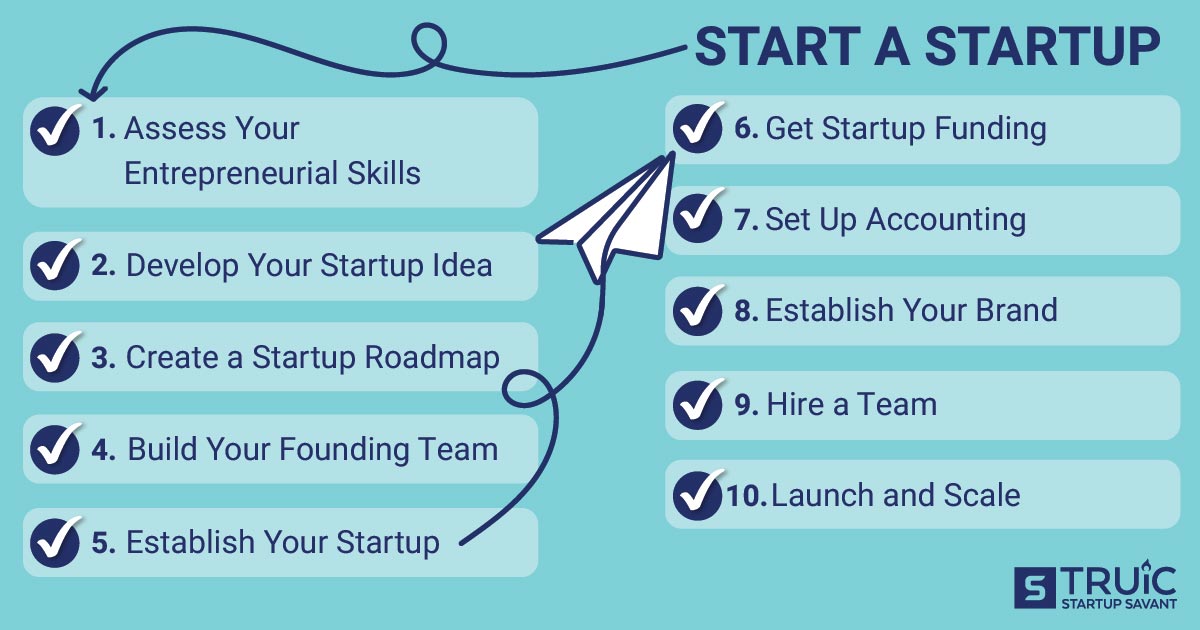Can I Do A Startup Alone?
Starting a business can seem like an overwhelming task—and it is. But it doesn’t mean that it’s impossible to do it alone. There are plenty of successful entrepreneurs who have done just that and gone on to have successful businesses. While starting a business on your own can be a daunting task, it is possible to do it—and do it successfully. This article will discuss the challenges and advantages of starting a business alone, and provide some tips on how to make it work. By the end, you’ll know what it takes to successfully launch a business on your own and how to make it profitable.
Defining a Startup
A startup is an entity that offers a new product or service to the market in the hope of achieving rapid growth. It has the potential to become a multi-million dollar business, but it also carries a high degree of risk. But the idea of starting a business alone can be daunting, and many worry that they don’t have the skills, resources, or network to make it happen.
To address this concern, it is important to understand what it takes to create a successful startup. First and foremost, a startup requires a unique and innovative idea. This could be a new product, a new service, or a new business model. Next, an individual needs to identify a market need that their idea can fill. This will require research and data analysis. Then, the individual must develop a viable business plan and secure the necessary funding. Finally, a startup founder should create a team of experts to help bring their idea to life.
The process of launching a startup is no easy feat. It requires dedication, hard work, and the right resources. But with the right guidance and support, it is possible to launch a successful startup alone. The key is to remain focused, be organized, and have a clear vision of the end goal. With the right attitude and preparation, it is possible to turn a startup into a successful business.
Pros and Cons of Starting a Business Alone
Starting a business alone can be an exciting and rewarding experience, but it also comes with its own unique set of challenges. From the lack of resources to the increased workload, it can be easy to become overwhelmed by the process. Before deciding to go it alone, it’s important to weigh the pros and cons of starting a business alone.
The biggest advantage of launching a business solo is that all of the decision-making is in your hands. You don’t need to rely on anyone else to agree on a plan of action, and can move as quickly as you like. You also have the freedom to shape the company in whatever way you think is best.
However, it’s important to remember that the success of a business relies on more than just the ideas and efforts of an individual. Starting a business alone can be a lonely process, and it can be difficult to find the necessary resources to launch and sustain a venture. Without a team, it can be hard to manage the workload and delegate tasks.
Before jumping into the world of entrepreneurship, it’s important to be honest with yourself about the pros and cons of starting a business alone. You need to be aware of the risks and potential challenges, and be prepared to take them on. If you’re willing to put in the hard work and dedication, going solo can be an incredibly rewarding experience.
How to Prepare for Launching a Startup
Starting a business is a daunting prospect, and one that can seem daunting and overwhelming, especially if you’re going solo. However, it’s not impossible to do a startup alone. There are many steps to take to prepare for launching a startup, and it’s important to take the time to properly research and plan for success.
The first step is to develop a viable business idea that meets a need in the marketplace. Identify the customer base and market size, and research the competition. Once you have a solid idea, it’s time to create a business plan that outlines the goals, strategies, and costs associated with starting the business.
The next step is to develop a financial plan to determine the start-up costs and determine the best funding sources. This includes creating a budget, securing any needed loans, and researching grants and other financing options.
Once the financial plan is in place, it’s time to secure the necessary licenses, permits, and insurance. This will vary depending on the type of business and the local regulations.
Finally, it’s important to create a marketing plan to help promote the business and generate sales. This plan should include a strategy for reaching the target audience, setting a budget, and choosing the most effective channels for reaching consumers.
By following these steps, you’ll be better prepared to launch your startup solo. With the right research, planning, and preparation, you can be successful launching a business on your own.

Overcoming the Challenges of Going Solo
Starting a business alone can be a daunting prospect, especially when you consider the many challenges that come with it. From managing finances to finding the motivation to keep going, it can be hard to stay the course. However, with the right strategies and resources, anyone can take the plunge and start their own business.
The first step to launching your own business is to understand the risks and rewards that come with it. There’s no denying that going solo can be quite risky, but the potential rewards can be immense. It’s important to research and understand the different aspects of running a business, from accounting to marketing, to ensure that you can make informed decisions.
Once you’ve done your research and made a plan, the next step is to get organized. Establishing a timeline and goal setting are essential for staying on track and achieving your goals. Additionally, having a support network can be invaluable when it comes to staying motivated and overcoming any challenges that come your way.
Finally, you must be prepared to invest in your business. Having the resources to invest in marketing, technology, and other necessary items can be the key to success. Additionally, having the right mindset and attitude can make all the difference in the success of your business.
Starting a business solo can be a daunting prospect, but with the right approach, anyone can make it a success. Taking the time to research, plan, and organize will help you stay on track and reach your goals. Additionally, investing in your business and having the right attitude will be key to success. With the right resources and strategies, starting a business alone can be an exciting and rewarding experience.
Building a Support Network
Starting a new business venture can be an incredibly exciting but also intimidating prospect. Most people understand the importance of having a strong support network behind them, but when it comes to launching a business, that network becomes even more critical. It’s important to build a network of people who can provide advice, guidance, and support during the startup process.
There are many ways to build your support network. One of the best ways is to connect with like-minded individuals who have already gone through the startup process. Connecting with experienced entrepreneurs can provide valuable insight into the process and help you avoid common pitfalls. You can also reach out to mentors, advisors, and industry experts who can provide valuable advice and guidance.
Another great way to build a support network is to join online communities or attend networking events. Investing time and energy into building relationships with other entrepreneurs can be an invaluable asset. Finally, don’t forget to lean on your friends and family for support. They can provide emotional and practical support during the process.
Having a strong support network can make a huge difference when it comes to launching a startup. By taking the time to build relationships with like-minded individuals, mentors, advisors, and industry experts, you can increase your chances of success and reduce the stress of the process.
Tips for Making it Work
The thought of creating and running a successful business is an intimidating one, especially when you don’t have any co-founders to help you along the way. But while having a co-founder to share the workload and responsibilities with is great, it’s not always necessary. Going solo on a startup is entirely possible, and many entrepreneurs have done just that and come out on top. Here are a few tips for making it work:
First, create a business plan. A business plan is a roadmap for your success, so make sure you include a detailed outline of your goals, strategies, and resources. It is also important to have a budget, as this will help you stay on top of your expenses and cash flow.
Second, build a network of trusted advisors. Having someone to turn to for advice and feedback can be invaluable. Reach out to mentors, peers, and industry professionals to help you along the way.
Third, stay organized. Make sure to track all of your progress and the tasks you need to accomplish. This will help you stay focused and motivated.
Fourth, be flexible. Don’t be afraid to pivot if needed. Having a Plan B for when your original idea doesn’t work out can be the difference between success and failure.
Finally, don’t be afraid to ask for help. You don’t have to do it all on your own. Reach out to friends, family, or even potential investors if you need extra help or resources.
These are just a few tips to help you make it as a solo entrepreneur. With a bit of determination, hard work, and a lot of planning, you can turn your dream into a reality.
FAQs About the Can I Do A Startup Alone?
1. What skills do I need to have to start a business alone?
A: Starting a business alone requires a combination of skills including knowledge of the particular industry, financial management, marketing, customer service, and operational skills.
2. Is it possible to start a business without any money?
A: Yes, it is possible to start a business without any money. There are many methods such as bootstrapping, crowdfunding, and seeking out investors.
3. What resources are available to help someone starting a business alone?
A: There are many resources available to help someone starting a business alone. These include online resources, mentorship programs, and business incubators. Additionally, there are many small business loan programs available to help fund a startup.
Conclusion
Based on the evidence presented, it is clear that it is possible to do a startup alone, but it is not recommended. It is much easier to have a team of people with a variety of skills and perspectives to help in the process. Having a team will help to ensure that the startup can hit the ground running and be successful in the long run. Additionally, having a team will also help to reduce the stress and workload of the individual, allowing them to focus on the creative aspects of the business. Ultimately, it is possible to do a startup alone, but having a team will greatly increase the chances of success.




